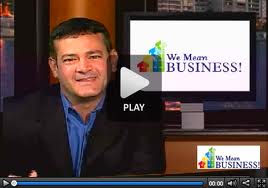How pausing can have you solve problems with logic … rather than emotion
One of the many subtleties underlying impeccable customer service is responding vs. reacting. At first glance, there seems to be little difference between the two, but the following story illustrates how profound that difference can be and how it can affect your relationship with your customer.
The Dilemma . . .
As the trainer for my client’s events booked at a local hotel, I arrived early on the appointed day, a Friday morning at 7:30 am, because one never knows what last-minute issues might need attention. But the one I found facing me on this particular morning was a whopper.
Jeremy, a hotel employee whom I had met and worked with before, was the lone banquet server on staff, and he’d just prepared all four of the banquet rooms for a series of events that — collectively — over 200 guests would be attending. Jeremy was in charge of all service elements — everything from audio/video requirements to food and beverage, and some of the guests had already begun filtering in. My client — a group of about 50 people — was scheduled to be seated in one of these rooms … or so I’d expected.
After greeting Jeremy, I asked him: “I didn’t see my client’s company name on any of the room entrance placards, so I wonder which room we’re in today?” Jeremy looked surprised, paused for a brief moment, and said, “I can double-check the contract, but I believe we weren’t expecting you until tomorrow.”
Reacting vs. Responding = Emotions vs. Logic
Uh oh! I began to panic, my mind racing as emotion took over. I felt myself reddening and beginning to perspire. In short, I reacted.
But Jeremy remained calm. He needed all of about five seconds to begin offering solutions, responding by jumping immediately into a “can-do” mode. “Well, that room around the corner is actually already set up for you guys in anticipation of tomorrow,” he said. “Our hotel was going to hold a team meeting in there this afternoon, but obviously your event takes priority over that. There’s just one thing I’ll need to check, and that’s whether the chef can have your breakfast buffet food ready on time. I’ll find out now and be right back.”
Jeremy’s recovery was so logical and so seamless that, to this day, there are only three of us (on the client side) who even became aware of this scheduling miscommunication. It caused not even a ripple of distraction for our 50 attendees because Jeremy responded swiftly and confidently, reminding me a little of a duck — graceful above the water, where all could see him, but moving forward at a million miles a minute with powerful and determined feet just below the surface.
So Whose Fault Was It?
Fact is, it didn’t matter to me and it certainly didn’t matter to Jeremy. What mattered was that Jeremy responded to the need that 50 people expected to have a comfortable and equipped space . . . and he made it happen. And Jeremy teaches us a valuable lesson: that responding to a crisis with logical problem solving is far more effective than reacting emotionally. Your customers, clients, guests, members, patients, users, etc. do not expect you to be perfect, but they do expect you to work with them to make things right, to reach resolution, to recover quickly. And you are held in a positive light when you do this without any finger pointing or even a hint of defensiveness.
As we wrapped up our half-day training, I asked to see both the hotel’s general manager and the president of the hotel group to express our gratitude for Jeremy’s solution-oriented attitude and responsive approach. Although I already knew and liked Jeremy, this episode turned me — an average customer — into an enthusiastic promoter for the hotel and its services.
Bottom Line
By responding to your clients instead of merely reacting, you too are promoting your business. And promotion translates into profit!
Your Turn
When have you witnessed — or been a part of — reacting vs. responding? Please comment below…



















Great story! I like focusing on responding versus reacting. And I’d hope most people in Jeremy’s situation would have taken whatever measures necessary to accommodate his guests…particularly in the hospitality industry!
(And, obviously it’s important after the fact for all parties involved to figure out where the break down occurred to avoid it in the future. You’d think there would be confirmations by both parties leading up to the day of the event.)
However, what would have been the proper response by the hotel had they been at capacity with no additional food or staff to accommodate your client on the fly? I assume if it was their error, they’d have to find a nearby restaurant or other space to host your event on their dime. If it was your client’s error, then I’d imagine the hotel should be willing to help out in whatever way possible within reason.
This was a seamless set-up for Jeremy, but I”m curious to learn the proper response when this sort of accommodation is not available.
Well, Jason, you’re right — this type of can-do attitude is especially important in the hospitality industry and it really relates to us all. In fact, I’d like to think that we’re ALL in the hospitality industry in a way. The great restaurateur, Danny Meyer, makes a very wise distinction between “service” and “hospitality.”
Neither Jeremy nor I spent even a moment on “fault” and we were both determined to seek resolution. This was the mark of a truly remarkable service provider. We BOTH wanted what was best for the 50 people who were on their way — bottom line. Whether the client’s “fault” or their own, I’m convinced that Jeremy’s innate solution-based orientation would have driven him to support us in any way possible … even if that meant finding us another space with one of their compeitors — he would have been quick to turn to a plan c or d if needed.
Thank you for your thoughtful — and thought-provoking — comment.
I love the part where you said, “Who’s fault was it… The fact is, it didn’t matter…”
So many times, as human beings, we know that we have “good intentions”, but stuff goes wrong anyway. So we assume that someone else “intentionally” messed things up, so we try to assign “blame” to the guilty party. Our assumptions couldn’t be further from the truth. If we can fight this natural emotional reaction, we can put that same energy into addressing the issue… For most of us, this is easier said than done.
To said it, Myron. It takes both emotional intelligence and emotional maturity.
Agreed, Myron! You might enjoy this quote by Stephen Covey which is exactly on point with your deduction: “We judge ourselves by our intentions and others by their behaviour.”
You must have known, Jason, that’s one of my favorite quotes! When people hear it, they really get it. Thanks for sharing that.